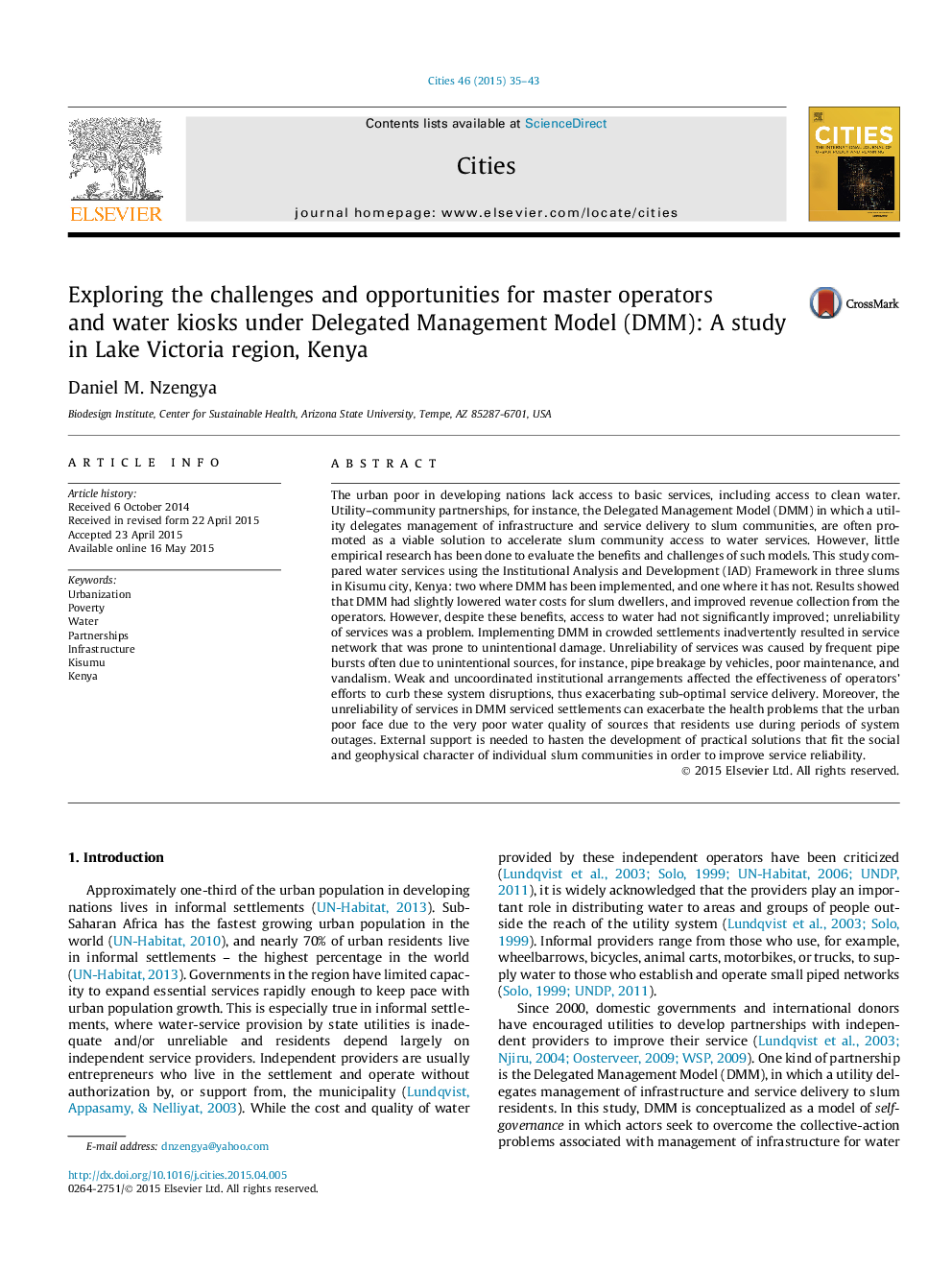| کد مقاله | کد نشریه | سال انتشار | مقاله انگلیسی | نسخه تمام متن |
|---|---|---|---|---|
| 1008257 | 1482350 | 2015 | 9 صفحه PDF | دانلود رایگان |
• Delegated Management is a partnership model to improve water services in slums.
• Kisumu’s DMM has lowered water cost.
• The DMM provides income opportunities to slum youth and women.
• Social pressure among DMM water kiosk operators improves revenue collection.
• Failure to account for biophysical conditions limits DMM benefits.
The urban poor in developing nations lack access to basic services, including access to clean water. Utility–community partnerships, for instance, the Delegated Management Model (DMM) in which a utility delegates management of infrastructure and service delivery to slum communities, are often promoted as a viable solution to accelerate slum community access to water services. However, little empirical research has been done to evaluate the benefits and challenges of such models. This study compared water services using the Institutional Analysis and Development (IAD) Framework in three slums in Kisumu city, Kenya: two where DMM has been implemented, and one where it has not. Results showed that DMM had slightly lowered water costs for slum dwellers, and improved revenue collection from the operators. However, despite these benefits, access to water had not significantly improved; unreliability of services was a problem. Implementing DMM in crowded settlements inadvertently resulted in service network that was prone to unintentional damage. Unreliability of services was caused by frequent pipe bursts often due to unintentional sources, for instance, pipe breakage by vehicles, poor maintenance, and vandalism. Weak and uncoordinated institutional arrangements affected the effectiveness of operators’ efforts to curb these system disruptions, thus exacerbating sub-optimal service delivery. Moreover, the unreliability of services in DMM serviced settlements can exacerbate the health problems that the urban poor face due to the very poor water quality of sources that residents use during periods of system outages. External support is needed to hasten the development of practical solutions that fit the social and geophysical character of individual slum communities in order to improve service reliability.
Journal: Cities - Volume 46, August 2015, Pages 35–43
